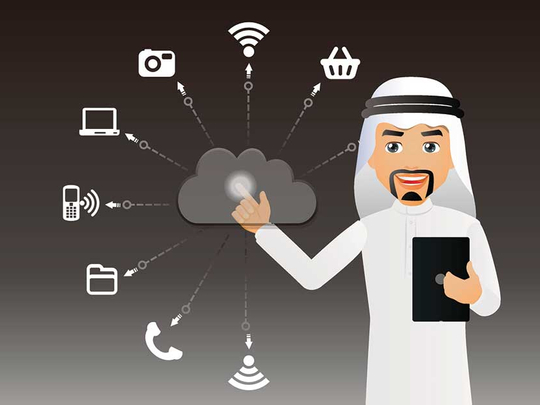
One cannot address the issue of change in this series of articles without exploring the rapid advancements in the field of communication and information technology.
Since the start of the third millennium, this domain has witnessed a true revolution that has had profound and radical effects on the different social, cultural, political, economic, security, and military aspects of human life. This revolution is viewed by many as the key to the future and to mastering the instruments of power, advancement, and modernity in an ever-changing world.
The developments in the field of communication have deeply affected the structure of human society throughout history. With each significant development or invention that facilitates and improves the means of communication, humanity has progressed from one stage of civilisation to a more advanced one.
In the beginning, humans utilised symbols, pictures, and signs for communication. When they succeeded in developing these symbols and signs into a form of writing and recording by using primitive materials such as papyrus, leather, and wooden boards, it was considered a major leap forward in knowledge transfer and communication for humanity.
When the printing press was invented in the 15th century, it was heralded as the greatest form of communication the world had ever known. It triggered a vast transformation by making it easier to print, publish, and distribute not hundreds, but thousands of books or documents. This launched an enlightenment movement in culture and knowledge that paved the way for modern civilisation.
In the 19th and 20th centuries, further significant inventions in the field of communication played a crucial role in global development. This started with the invention of the telegraph in 1837, the telephone in 1876, and the phonograph in 1877, which promoted commercial, cultural, and academic interactions across human societies. In 1896, the radio — the first device to use electromagnetic waves to transmit information across the ether — was invented, which further revolutionised the process of communication. This opened the door for the telecommunications revolution that led to the invention of the television in 1924.
In the second half of the 20th century, it was satellite technology that was viewed as a miracle in the communications field. As well as having a role in developing telecommunications, satellites also were used as tools of espionage, in the identification of military targets, and in guiding of weapons of war.
In all these radical transformations, the advancements in the communications sector have contributed towards the development of humankind and world civilisation. However, the impacts of this sector have never been as profound and widespread as in the past few decades. Thanks to the dramatic developments that humankind has achieved in the areas of knowledge, information systems, and electronic advancements — especially with the emergence of the internet — there has been an unprecedented communication revolution that has changed the world. The most significant feature of this revolution in the field of communication and information technology is the sweeping transformations that are taking place. This revolution is developing much more rapidly than the communication and knowledge revolutions of the past. Many people, even the most astute observers and followers, often fail to keep abreast of the changes that are taking place.
Aspects of transformation
This can easily be demonstrated by examining the profound transformations the world has witnessed in this field since the turn of the new millennium. In the year 2000, the landline telephone and a very limited internet were the main means of communication among people. Today, less than two decades later, billions of people use their smartphones for communication. Social media and messaging applications revolutions are widespread, while broadband internet connections are extensively used by almost half of the world’s population. At the end of 2017, the International Telecommunication Union (ITU) estimated that about 4.3 billion people around the world were using the internet. A report by the US International Trade Commission (USITC) in August 2017 estimated that 16.3 billion devices were connected to the internet in 2015, an increase of 87 per cent from 2012. The flow of information via the internet also increased 12-fold between 2007 and 2016. Data-processing capabilities have also significantly evolved, as well as storage capacity and knowledge accessibility. Additionally, there are spectacular developments in emerging technologies, which encompass a wide range of innovations such as artificial intelligence (AI), robotics, the internet of things (IOT), autonomous vehicles, 3D printing, quantum computing, and more.
Of course, in this limited space we cannot elaborate on all the effects and transformations that the communication revolution has had on every aspect of human life. I have already addressed some details of these aspects in my 2013 book From Tribe to Facebook: The Transformational Role of Social Networks. However, I will touch on some of the aspects of transformation and change resulting from this communication revolution thus far. I expect that its influence will extend and evolve in the future, creating a totally different world from the one we currently know. The first aspect is of an economic nature and focuses on the global knowledge economy and investment in information technology and communications. The volume of change here is, by all accounts, stunning. According to the aforementioned USITC report, global e-commerce has vastly expanded as shopping has moved from traditional stores to the internet and smartphones. The report shows that e-commerce grew from a total volume of $19.3 trillion (Dh70.8 trillion) in 2012 to $27.7 trillion in 2016, of which $3.8 trillion was between consumers and companies and $23.9 trillion of e-trading was between the companies themselves.
This is at a time when information technology companies top the list of the world’s biggest corporations in terms of market value. For example, Apple was worth an estimated $900 billion at the end of 2017, according to a report by Bloomberg in November 2017. While an article in the British newspaper The Guardian from January 3, 2018, reported that the value of Alphabet Inc., the parent company of Google, was worth $729 billion; Microsoft was worth $660 billion; Amazon was worth $563 billion; Facebook was worth $515 billion; and the Chinese firm Alibaba had a market value of $441 billion. The communication and information technology revolution is the focal point of the Fourth Industrial revolution (4IR), towards which the world is hastily heading. This is intrinsically based on the idea of inventing smart systems and machines that can be controlled via mobile high-speed broadband telecommunication networks.
Second is the sociopolitical aspect. This is associated with how the communication revolution has eroded the conventional ideas of national sovereignty that have existed since the concept of the modern nation state was established following the Treaty of Westphalia in 1648. This revolution has broken all domestic and international boundaries and barriers, influenced the values of national identity of citizens of different societies, and created the “Global Citizen,” whose orientations, ideas, and principles are no longer shaped by his local environment and culture, rather by the external ideas and values being constantly broadcast on social media and the internet. This communication revolution has affected the patterns of social relationships between people, as well as their morals, behaviours, and interactions. It also poses new challenges that governments need to adapt to and cope with. The idea of e-government evolved to provide e-services to citizens. Some governments have restructured their local governance systems to establish a direct interaction between citizens and local authorities.
Third is the security-military aspect. The communication and information technology revolution has provided a dangerous platform for terrorists and extremist groups to expand and disseminate their dark ideas across societies. Furthermore, it has provided new means that can be utilised by competing and conflicting powers to inflict damage upon their competitors. These include cyberwarfare, which is becoming increasingly dangerous, and the attempts to penetrate competing countries from within, threatening their security and stability by inciting social unrest or creating sleeper cells, or even using modern communications for espionage and collecting detailed information about rivals.
In the past two decades, communication and information technology offered abundant and important opportunities to promote cooperation and cultural interaction between countries and peoples of different cultures. It helped create sustainable economic development based on the knowledge economy. In turn, it also created serious challenges for countries and governments and produced global threats, which the world can only counter through enhanced cooperation. This revolution, however, is only in its early stages and its ultimate effects are not yet known. Vast investments are being directed toward this vital sector, focusing on the creative and innovative elements to develop new methods, mechanisms, and applications to consolidate the existing communication revolution.
Control over lives
The communication revolution will also open up new opportunities and present new challenges that may well be more serious than the current ones. These could include the erosion and possible loss of governments’ capabilities to control the means of communication and social media within their national boundaries. Today, governments control internet services and can disconnect or deny access based on their national security interests. In the future, however, governments may lose this control to pioneering IT companies that could provide internet services to the citizens of any country, even without the consent of these governments. Also, in the future these services could become fundamental human rights, which, should governments violate them, could entail blame and punishment. The expansion in modern information and communication technologies, especially the IOT, means these technologies will have a deeper and more effective control over our lives and mark the end of the “era of privacy of humankind.” With the growing dependence on smart machines and the decrease in reliance on the contribution of humans, global unemployment rates stand to rise. This may cause social problems, not to mention challenges in revising the existing legal framework to deal with the new advances and the age of smart machines and robotics, as well as the ethical aspects of all these developments.
I believe that the most important challenge of the future is being able to adapt to the ever-accelerating changes that the world is witnessing in the field of communication and information technology. It is a challenge that faces the developed world. For example, Nokia, which once controlled the mobile phone global market and was the first to manufacture smartphones, failed to maintain its position and was overtaken by the likes of Apple and Samsung. The reason was simple — Nokia was too slow and could not keep pace with the accelerating changes in this field.
It is reassuring that the UAE has understood the importance of investing in this vital sector within the context of its strategic future orientations and achieving sustainable development in the post-oil era. Our wise leaders have launched several ambitious initiatives and projects that aim to prepare society to compete in this field. These include the e-government and smart government initiatives, the plan to explore outer space by sending the Hope probe to Mars, and the launch of the UAE Strategy for the Fourth Industrial Revolution and the formation of an associated council to pursue it. This strategy will act as a basis for investments in the future sectors based on AI, robotics, cloud computing, 3D printing, and the IOT. This clearly shows that the leadership, which God has bestowed upon the UAE, is aware of and well-informed about the essence of the changes affecting the world today, while also possessing the will, determination, and ability to tackle these challenges.
Dr Jamal Sanad Al Suwaidi is a UAE Author and Director-General of the Emirates Centre for Strategic Studies and Research.










